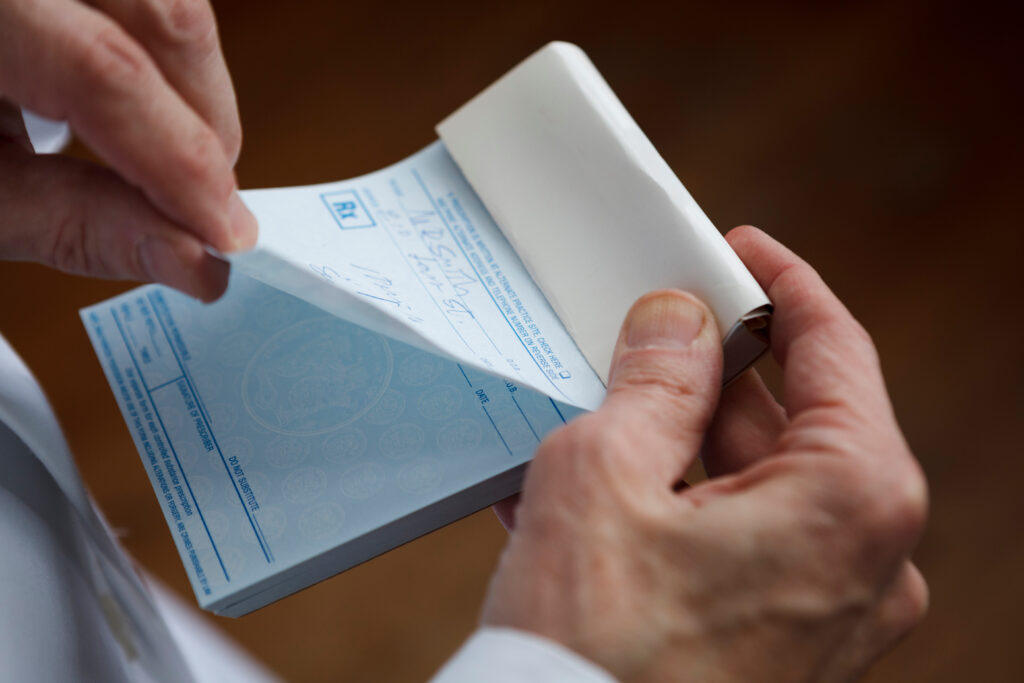
In conjunction with the Department of Health and Human Services, the DEA extended telemedicine prescribing medications flexibilities through 2024. We caught up with Dr. Kelly Dunn, Executive Director of Clinical Treatment at the National Center for Wellness and Recovery, to get her thoughts on the extension.
Q: What does this extension signal?
This allows the DEA time to reflect on the current landscape of telehealth practices and create a system that allows the delivery of much-needed health care via telehealth while protecting patients from bad practices. The ruling to extend time for the DEA to finalize telemedicine prescribing rules demonstrates the complexity of this decision and the thoughtfulness needed to create rules that do not limit access to necessary care but also prevent future prescription drug epidemics.
Q: Why is this decision so important?
The final rules the DEA plans to release next year are crucial to hopefully continue to allow systems that have been put in place for the past couple of years to reach patients that otherwise will not have access to care. More restrictive rules could limit these programs and medically necessary services might have to be withdrawn, leaving many without access to life-saving addiction treatment. Research continues to support the safety and efficacy of telemedicine, and we hope to continue to be able to reach populations that would not have access without telemedicine.
Q: How will this make a difference in what you do?
This allows us to continue our current programs until they release final rules next year. Currently, we provide virtual Addiction Medicine in over eight locations in Oklahoma: Hollis, Henryetta, Wetumka, Lawton, Oklahoma City, Ardmore, Pauls Valley and one tribal nation, the Kickapoo Tribe of Oklahoma. We’re also looking into adding additional locations that need these services and are exploring the possibility of starting virtual Psychiatry and Addiction Medicine consultation services in rural Emergency Departments.
Q: Who will this benefit the most and why is this significant?
This continues to benefit patients who do not have local access to care, especially in health care shortage areas in rural areas but also urban populations, too. Many patients in our communities do not have access to an addiction medicine specialist. They have gained access for the first time with telemedicine programs launched over the past several years. In addition, many patients struggle with transportation to doctor’s offices to make regular appointments. Some patients find it easier to speak with a health care professional virtually, especially on difficult topics, such as substance use disorders. Virtual appointments also allow patients to see their doctor without requesting time off from work, which is normally required when you have to drive to a physician’s office. Our parenting patients also find it difficult to find reliable childcare to attend visits, a population we definitely need to be reaching. Recent studies have shown that engagement and treatment might even be better with virtual services. For all these reasons, this decision by the DEA will be extremely impactful.
Q: What are your thoughts on the pros and cons of this decision?
I am glad they are taking the due time to consider all the nuances and potential consequences of their decisions, but it also makes it hard to plan long-term interventions while they delay their final decision until 2024.
Contact the NCWR Addiction Recovery Clinic at OSU at 918-561-1890 to schedule an appointment. In case of a medical emergency, please call 911. For immediate and confidential emotional support, please call 988 to reach the National Suicide and Crisis Lifeline.
Additional Information and Resources
- Addiction Treatment and Telehealth: Review of Efficacy and Provider Insights During COVID-19 Pandemic
- DEA and HHS Extend Telemedicine Flexibilities through 2024
- NCWR Addiction Recovery Clinic at OSU
- Second Temporary Extension of COVID-19 Telemedicine Flexibilities for Prescription of Controlled Medications